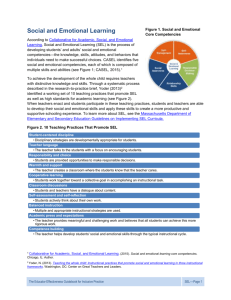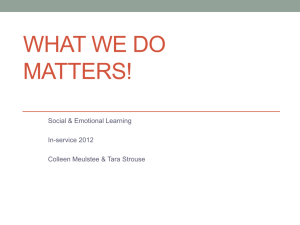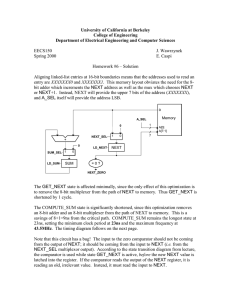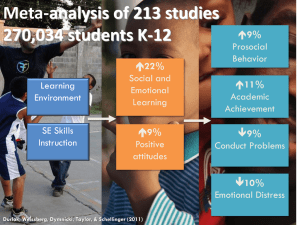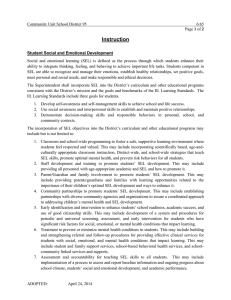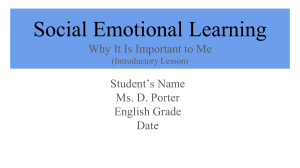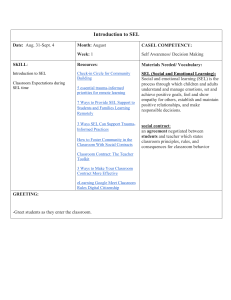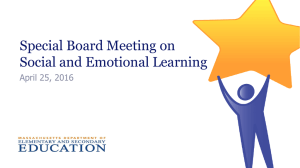Editorial Volume 7, Number 2, November 2015 pp 1
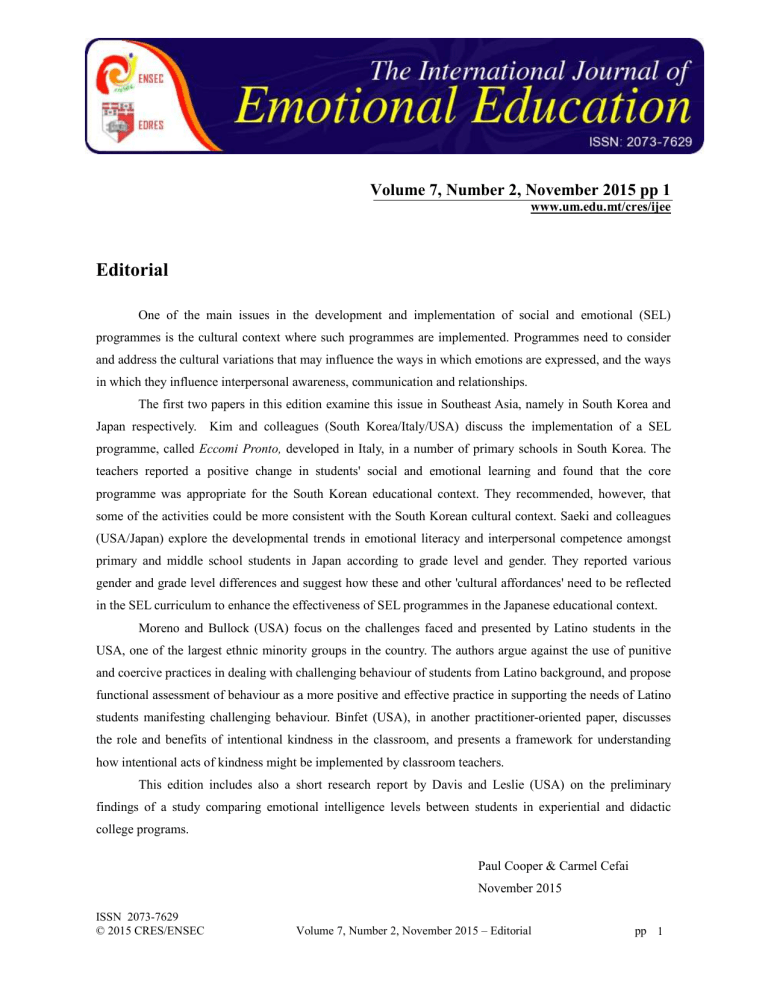
Volume 7, Number 2, November 2015 pp 1
www.um.edu.mt/cres/ijee
Editorial
One of the main issues in the development and implementation of social and emotional (SEL) programmes is the cultural context where such programmes are implemented. Programmes need to consider and address the cultural variations that may influence the ways in which emotions are expressed, and the ways in which they influence interpersonal awareness, communication and relationships.
The first two papers in this edition examine this issue in Southeast Asia, namely in South Korea and
Japan respectively. Kim and colleagues (South Korea/Italy/USA) discuss the implementation of a SEL programme, called Eccomi Pronto, developed in Italy, in a number of primary schools in South Korea. The teachers reported a positive change in students' social and emotional learning and found that the core programme was appropriate for the South Korean educational context. They recommended, however, that some of the activities could be more consistent with the South Korean cultural context. Saeki and colleagues
(USA/Japan) explore the developmental trends in emotional literacy and interpersonal competence amongst primary and middle school students in Japan according to grade level and gender. They reported various gender and grade level differences and suggest how these and other 'cultural affordances' need to be reflected in the SEL curriculum to enhance the effectiveness of SEL programmes in the Japanese educational context.
Moreno and Bullock (USA) focus on the challenges faced and presented by Latino students in the
USA, one of the largest ethnic minority groups in the country. The authors argue against the use of punitive and coercive practices in dealing with challenging behaviour of students from Latino background, and propose functional assessment of behaviour as a more positive and effective practice in supporting the needs of Latino students manifesting challenging behaviour. Binfet (USA), in another practitioner-oriented paper, discusses the role and benefits of intentional kindness in the classroom, and presents a framework for understanding how intentional acts of kindness might be implemented by classroom teachers.
This edition includes also a short research report by Davis and Leslie (USA) on the preliminary findings of a study comparing emotional intelligence levels between students in experiential and didactic college programs.
Paul Cooper & Carmel Cefai
November 2015
ISSN 2073-7629
© 2015 CRES/ENSEC Volume 7, Number 2, November 2015 – Editorial pp 1

